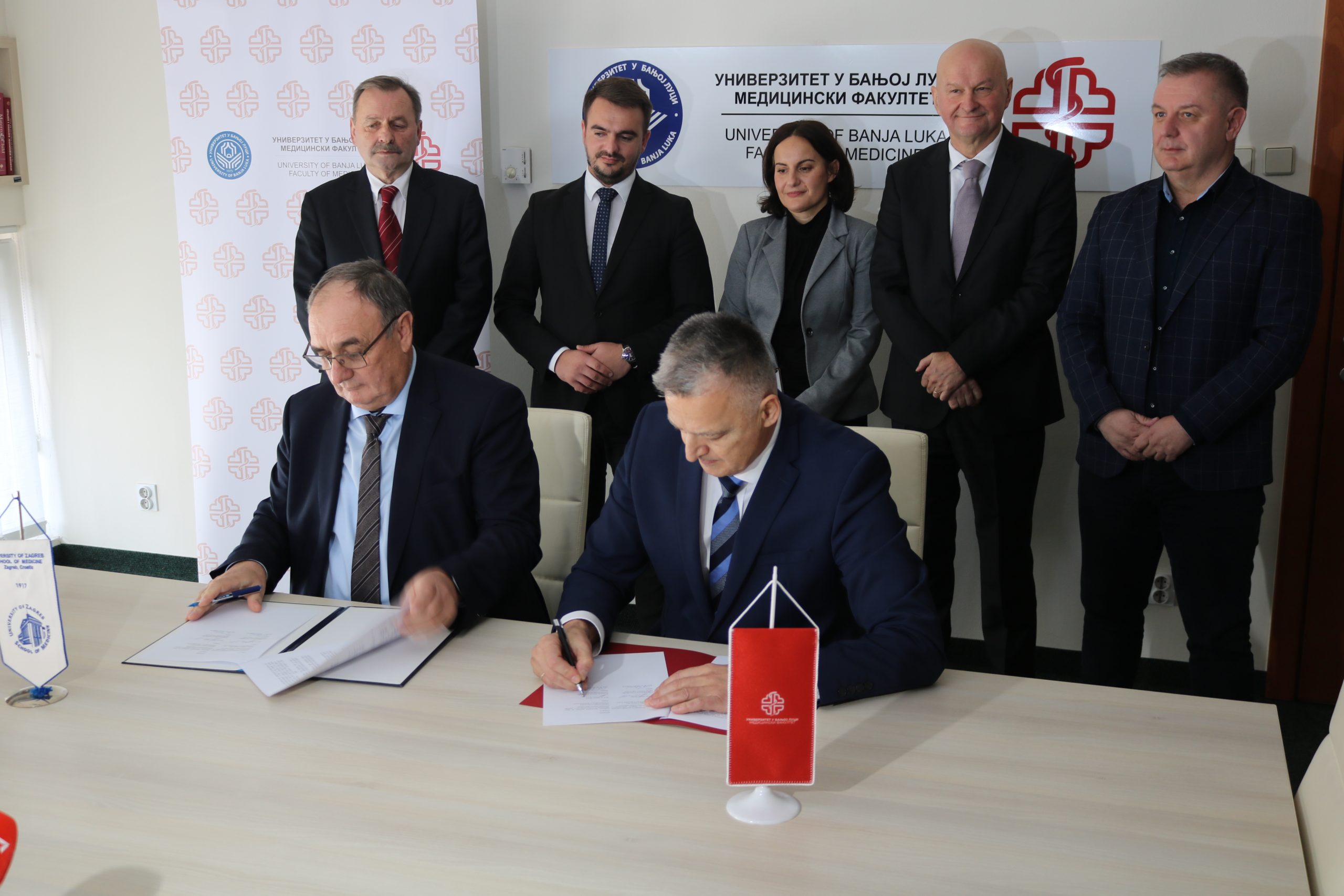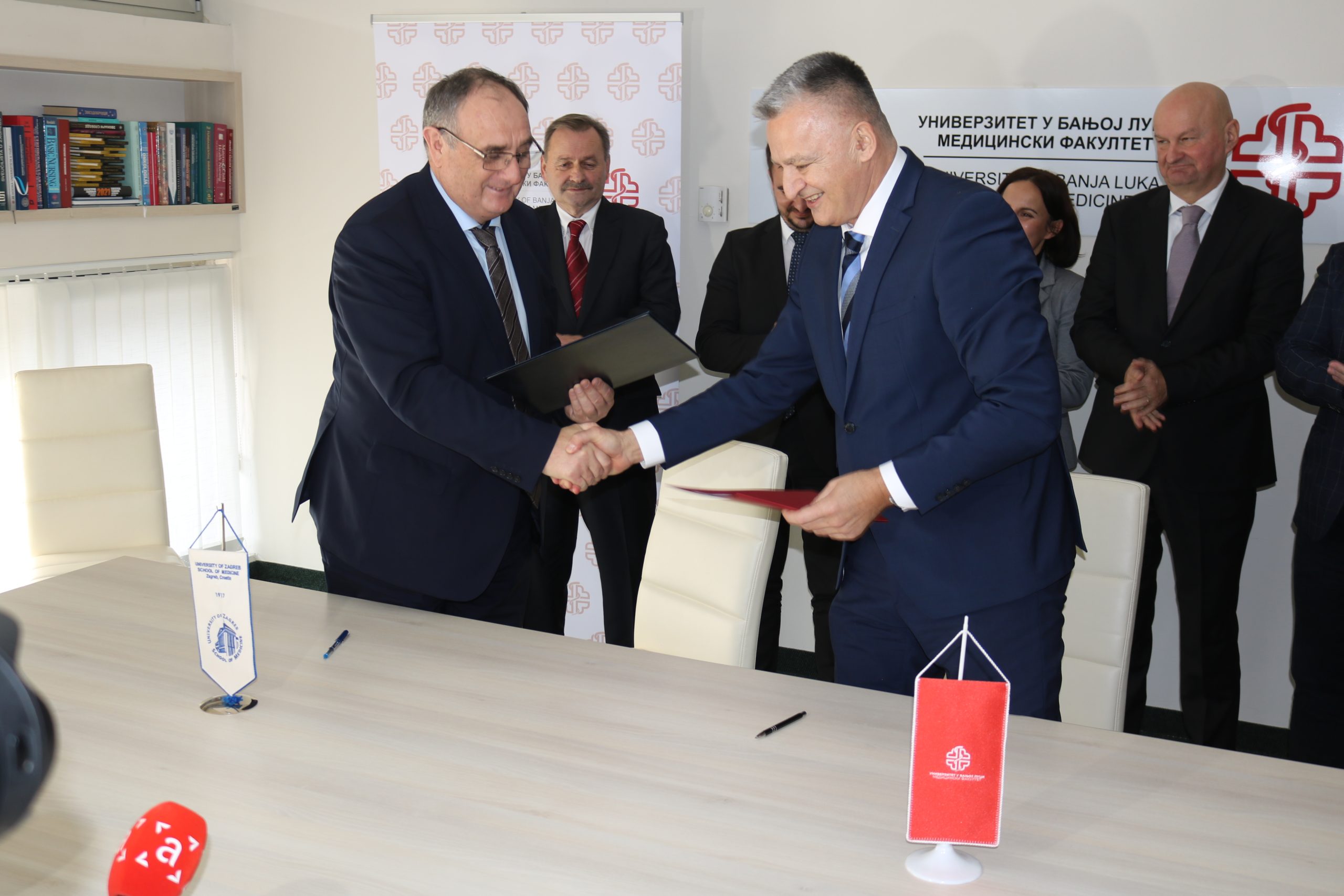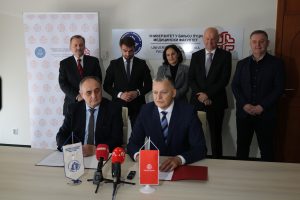On November 25, 2024, in the ceremonial hall of the Dean’s Office at the Faculty of Medicine, University of Banja Luka, a Cooperation Agreement was signed between the Faculty of Medicine, University of Banja Luka, and the Faculty of Medicine, University of Zagreb. This event is significant for advancing academic, scientific, and professional relations between the two higher education institutions.
The agreement was signed by prof. Ranko Škrbić, PhD, Dean of the Faculty of Medicine in Banja Luka, and prof. Slavko Orešković, PhD, Dean of the Faculty of Medicine in Zagreb. The agreement envisions cooperation in undergraduate education, student exchange, scientific research, and joint participation in projects.
Dean Škrbić stated that the agreement is the result of initiatives launched a few months ago, thanks to Davor Pranjić, the Vice President of Republika Srpska representing the Croatian community, who attended the signing ceremony. He explained that the agreement also includes opportunities to improve postgraduate education, particularly specialist training, by jointly enhancing the quality of teaching. It allows specialists and those pursuing postgraduate education to study in Zagreb, as they already do in other regions, while also offering programs provided by the Faculty of Medicine in Banja Luka.
“There is always room for the exchange of professors and young researchers. What is particularly encouraging is the opportunity to work with Croatia, an EU member, on projects funded through EU cross-border cooperation programs,” Škrbić noted.
He emphasized that there are numerous areas for potential collaboration, continuing a longstanding partnership.
Dean Škrbić pointed out that Banja Luka, being very close to Zagreb, can participate in projects and activities that Zagreb has already been implementing through EU funding programs. He expressed his enthusiasm for this collaboration.
Dean Orešković of the Faculty of Medicine in Zagreb said that the signed agreement extends a long-standing collaboration. He reminded attendees that the Faculty of Medicine in Zagreb, which marks its 107th anniversary this year, has been a hub of medical knowledge and science in the region.
He highlighted that the Faculty of Medicine in Zagreb played a pivotal role in the establishment of the Faculty of Medicine in Banja Luka, as well as faculties in Tuzla, Zenica, Sarajevo, Mostar, Rijeka, Split, Osijek, and Maribor.
“We have not confined ourselves within our framework. Instead, we strive to share our knowledge and skills with colleagues in the region,” said Orešković.
He added that the Faculty of Medicine in Zagreb has approximately 3,000 students across various disciplines, two study programs—in English and Croatian—two doctoral programs in biomedical sciences and neuroscience, and 53 postgraduate specialist programs. These, as he stated, will likely also be available to colleagues in Banja Luka, as they are intended for those pursuing specializations and postgraduate studies.
“We also have two centers of excellence and more than 700 employees, of whom 500 are teaching staff,” Orešković concluded.



